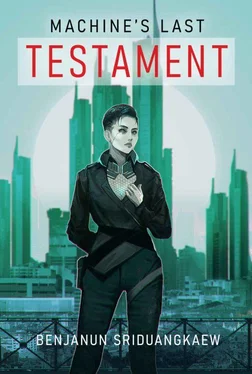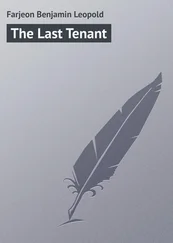At seven exactly, curfew begins and all lights turn off: their time is regulated more strictly than in any creche, and they are regulated more closely than toddlers. Routines within the camp serve to discipline, deprive control, and finally to infantilize. In the dark, her dorm-mates toss and turn and cough, and Ovuha thinks of her strategies. The precision she will require against a dwindling timeline.
Her thoughts wheel inevitably to the Comet, transfixed by that moment of annihilation, that final gesture. Perhaps it is part of the script but she does not think so. In spite of what the Warlord of the Comet has done to her—all too willingly, if they must go then they will take her down with them—she thinks of the gun, the trigger: that is what Ovuha would have done herself to avoid the sentence. Years in captivity while Samsara wrings it all out of her, the secrets, the names of ships and the statistics and the routes. Better to go at a time of one’s choosing; a bullet is seductive. How the Comet learned that Ovuha infiltrated Anatta is another matter, but it is irrelevant. Information is a human thing and therefore impossible to make watertight. Control of it is illusory and transient.
She turns on her side and tries not to think of Mahakala. The Thorn’s seat of power and most guarded treasure, which even Samsara has not yet found. The ultimate prize other warlords strove to acquire, even the name of it a close-kept secret. The only world, other than Anatta, that can host human life.
The games continue, against all reason. Ovuha goes, there’s little enough choice. That night some new fancy has struck Ehtesham; they paint her face in jagged stripes, blue and white. In the dimly lit courtyard, she chooses her weapon from a rack. All are blunted, toothless. But they can still inflict damage, severe, even fatal.
Her opponent is an inmate whose name she’s never learned, a bulky creature who was the reigning champion during her absence. She has not fought him before; she will fight him now. Normally she puts on a show, because that earns her more passes, more privileges. This time she is efficient—she disables him within the first five minutes, a pop of the kneecap, a wrench of the arms.
She finds, hidden in the inner crook of his elbow, a twist of code etched onto skin. Another piece. She memorizes it and then slashes several crude lines across with her blunted knife, to leave as little evidence behind as possible. By then she knows it’s no coincidence. The Thorn’s hire, out there somewhere, is actively sending her information.
A week after the Comet’s declaration on air, one of the inmates is accused of being the hidden warlord. Ovuha doesn’t find out who the accuser was, only that one of the petty camp tyrants disappears soon after. The man used to be a warden’s pet, but that status evidently offers no protection—something she’ll have to keep in mind herself—and even though the accusation is absurd, he does not come back. As good a way to dispose of unwanted bodies as any. It is almost a surprise that nobody reports her in the same way; she has accrued her share of grudges, in and out of Ehtesham’s arena. She wonders how many others, across Anatta, have just discovered themselves the Warlord of the Thorn. In a bleak way, it amuses her.
She is at the pool when her turn comes to be interviewed. The wardens enter with their razor drones, masses of hovering blades like industrial blooms. Anatta drones always look a little like artwork, meticulously imagined and put in motion.
They tie her hands and tie her feet, and then throw her into the water. Ovuha doesn’t sink immediately. But they’ve bound her wrists and ankles absolutely tight, there is no way to maneuver. Before her plunge she inhaled as much as she can. It doesn’t last. She makes herself relax, her muscles as loose as they can be. For all her recent practice she’s no trained diver, and soon her diaphragm spasms, her chest burns. She fights still. Then her mouth involuntarily parts, the first gasp, and now her throat clenches, the water rushes in.
She is pulled up.
On the pool’s edge they turn her on her stomach and strike her on the back, once, twice, to knock water out of her throat. They push her in a second time.
By the third she’s lost control of her bladder; she pisses herself when she comes up. A warden flinches—someone spits out “Fucking disgusting”—and another holds her jaw open while a drone slips its cilia down her esophagus. She thrashes, gagging, trying pointlessly to repel it.
When it is done draining her lungs, she is pulled upright. “You have something you’d like to tell us,” one warden says, “don’t you.”
Ovuha almost laughs, is too weak to even attempt that. She could tell them that this is terrible interrogation technique. There was no opening to grant her the chance to talk before she’s subjected to further agony, no reprieve to offer her the clause of or else . But she suspects, regardless of their actual orders, this is a chance for bored wardens to see a little blood, a little pain. Ehtesham probably doesn’t even approve, as he prefers the sport. She swallows—even her own saliva sears—and swallows again. “You will have to be more specific,” she rasps. Less in courage, more exhaustion. Another mark of the poor interrogator: there is no lead. Asking the prisoner to produce whatever comes to mind is the least fruitful approach imaginable.
“Where are you from?”
“Gurudah.”
The warden hits her in the mouth. “Try again.”
She squeezes her eyes shut. They stream when she opens them; every optical nerve is raw and her lip must have split. “Gurudah.” The problem with undisciplined violence, she could tell them, is that it does not create the balance of risk versus reward. There is no risk that further brutalizing will come—it will come regardless. There is no reward in answering truthfully. Grant the prisoner an illusion of control, that there’s something they can do to improve the situation, and cooperation becomes tremendously likelier.
They ask her name. She says Ovuha Sui. They kick her and ask again. They ask for the names of her family, what she used to do on Gurudah, and she gives the same answers as what is listed in her potentiate profile. Consistency makes or breaks a cover story, and maintaining her fiction has never been difficult. Even now.
They return her to her dormitory with a fractured cheekbone, her face swollen, her flanks a snarl of bruises on bruises. She lies on the floor, breathing in the reek of her own urine. She slips in and out of consciousness, waking up each time to the ammonia stench. It ceases to offend after a while.
When she does wake properly, she is somewhere else. The ceiling is a muted pastel blue. A sense of detachment from her body: pain has been made remote, as of sensation belonging to someone else, a background element, easy to ignore. Anesthetics. She can smell her own blood and the foulness in her own mouth but the reek of urine is gone, and she is not on the floor.
“Ovuha?”
For a fractured second she thinks the voice belongs to Suzhen, that when she turns her head it is Suzhen she will see. Something in the inflection. Something in wishful thinking. It is Warden Hinata. The woman is seated on a stool, leaning over her. “I’m very sorry about what they did to you.” She thumbs a button out of Ovuha’s view. Ovuha’s mouth fills with cool liquid, citrus and honey, lightly sweet-sour.
“I thought,” she says, “you were stationed at House Penumbra.”
“Yes, well. I used to work at a detention center actually, but the post didn’t suit me, you might say I lack the constitution. Halfway houses are much more…” Hinata trails off. Makes a noncommittal gesture. “Halfway houses are more orderly.”
Читать дальше












